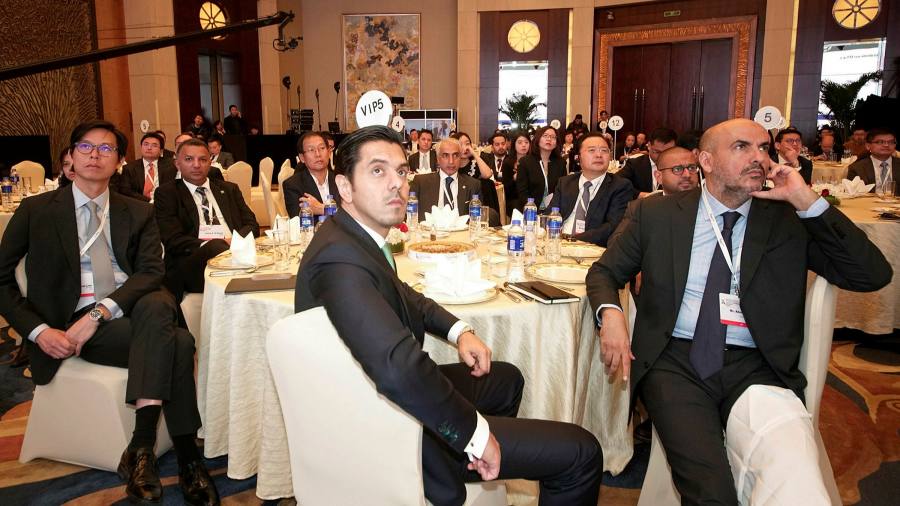[ad_1]
A UK employment tribunal has been told the London-based Kuwait Investment Office cannot rely on state or diplomatic immunity because the sovereign wealth fund is a “separate legal entity†and not part of Kuwait’s diplomatic mission.
The KIO is challenging a June 2020 decision that it hand over “potentially highly sensitive†documents by arguing it has immunity and is protected by the Vienna Convention on Diplomatic Relations. Those documents include internal emails and investment mandates.
The hearing is part of a broader dispute between the $600bn sovereign wealth fund and former employees, which began during a period of upheaval after Saleh Al-Ateeqi, a former McKinsey partner who once worked for Tony Blair, was appointed president of the KIO in 2018.
Simon Hard and Anna Locke are claimants against the KIO in the employment tribunal appeal case. Mr Hard had been head of fixed income since 2007 and an acting KIO president before Mr Al-Ateeqi’s arrival. Ms Locke was previously the KIO’s head of operations.
Before he was sacked, Mr Hard, began a case against the KIO, alleging whistleblowing detriment, victimisation and age discrimination.
The KIO has separately launched High Court proceedings against three former executives — Mr Hard, Caroline Taylor, head of human resources, and Prashant Vithlani, head of equities, formerly acting president and a 22-year veteran of the fund, over an alleged conspiracy to award unlawful pay increases. The trio deny wrongdoing.
James Laddie QC, acting for Mr Hard and Ms Locke, told the tribunal that the KIO’s High Court case, where it is claiming losses and damages of more than £1m, was a “blatant act of retaliationâ€.
“They say ‘we can have our cake and eat it’ †he said. “They can disclose the documents that suits them, entirely on a voluntary basis, and conceal under the cloak of immunity, documents that are adverse to their case.â€
He said the KIO cannot be part of Kuwait’s mission because it is a separate legal entity to the state of Kuwait. “It is independent,†he said.
Dan Sarooshi QC, acting for the KIO, said the decision on document disclosure violated the KIO’s rights in international law, “with potential consequences for HMG (Her Majesty’s Government) in the conduct of the UK’s international relationsâ€.
Professor Sarooshi said the British government recognised the KIO as part of Kuwait’s mission. “It’s an irrebuttable fact,†he said, adding the documents being sought “remain in the protective archive of the KIOâ€.
More than 30 out of the KIO’s roughly 100 employees have left the organisation since the start of 2018, according to people familiar with the matter. Recent departures include Hamish Stirrat, senior vice-president and head of European equities who had worked at the KIO for more than 28 years; Gordon Pang, head of middle office and a member of the management committee; and James Reece, head of recruitment.
Simon Roberts, former head of global equities at BNP Paribas Asset Management, joined the KIO last year as senior vice-president. “KIO has also hired 20 additional professionals in the same amount of time,†according to a person close to the sovereign wealth fund.
The employment appeal tribunal case before judge Naomi Ellenbogen QC continues on Thursday.
The KIO, which opened an office in London in 1953, is the world’s oldest sovereign wealth fund. The Kuwait Investment Authority was established in 1982 as the KIO’s parent firm.
[ad_2]
Source link






